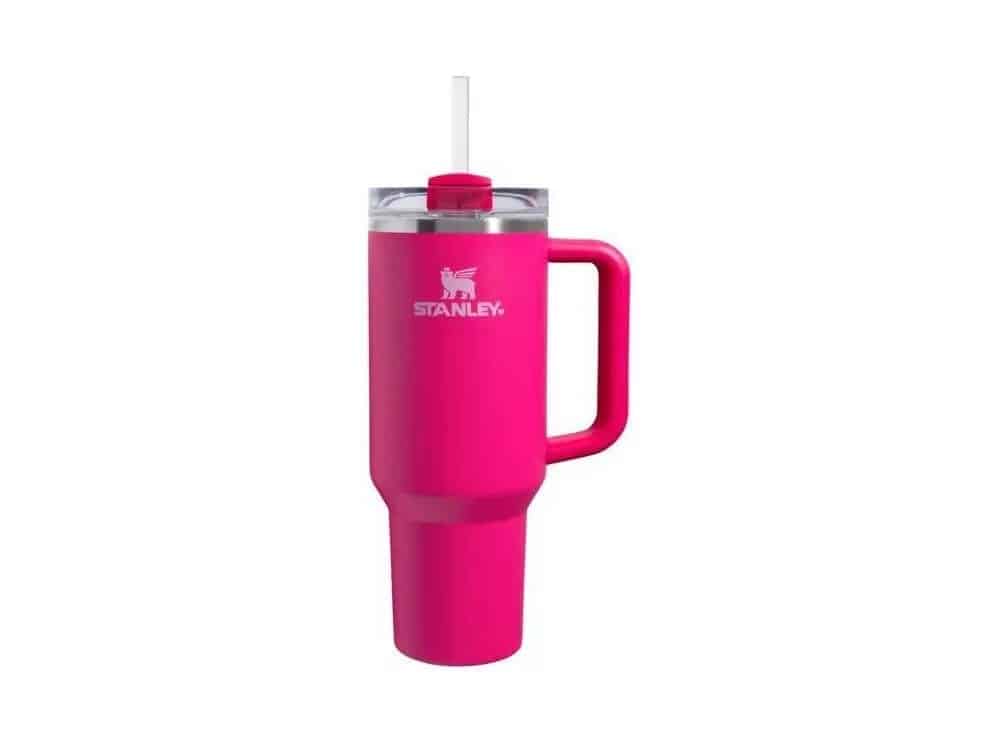If you purchased Huel Black Edition protein powder, you may have unknowingly exposed yourself to dangerous levels of lead and cadmium. In October 2025, Consumer Reports published testing results revealing that Huel Black Edition contains 6.3 micrograms of lead per serving, which represents 1,290 percent of Consumer Reports’ safety threshold. Consumer Reports advised consumers to avoid this product. If you consumed Huel Black Edition regularly, you may be entitled to compensation through a class action lawsuit.
The Consumer Reports investigation tested 23 protein powders and ready-to-drink shakes over a three-month period beginning in November 2024. Consumer Reports’ experts determined that Huel Black Edition contained lead levels high enough that they advise against consuming the product. The findings revealed that Huel Black Edition also contained 9.2 micrograms of cadmium per serving, more than double the safe level established by Consumer Reports. This marked the highest cadmium levels of any product tested in the investigation.
What Consumer Reports Found in Huel Black Edition
Consumer Reports investigators conducted independent testing on multiple samples of Huel Black Edition, purchasing products anonymously from various retailers to ensure representative results. The testing protocol included analyzing two to four distinct production lots of each product to account for potential batch variations.
The results for Huel Black Edition revealed alarming contamination levels. The product contained 6.3 micrograms of lead per 90-gram serving, which equates to two scoops of the powder. This lead level exceeds Consumer Reports’ safety threshold of 0.5 micrograms by more than twelve times.
Beyond lead contamination, the investigation uncovered serious cadmium concerns. At 9.2 micrograms per serving, Huel Black Edition contained more than double the safe daily cadmium level established by Consumer Reports at 4.1 micrograms per day. The Environmental Protection Agency has classified cadmium as a probable human carcinogen.
The food safety researcher who led the Consumer Reports testing stated that the results were particularly troubling because contamination levels have worsened since the organization last tested protein powders in 2010.
Health Risks Associated with Lead and Cadmium Exposure
Medical experts emphasize that no amount of lead exposure is technically safe for human health. Lead accumulates in the human body over months or years, which means that even small amounts consumed regularly can build up to dangerous levels over time. Dr. Rose Goldman from Cambridge Health Alliance explained that while the greatest danger comes from repeated or continuous exposure at high doses, lead lingers in the body and small amounts can add up over time.
Lead exposure affects multiple organ systems. Neurologically, lead damages brain function in both children and adults. In children, lead exposure causes learning disabilities, reduced IQ scores, behavioral problems, reduced attention span, and antisocial behavior. Adult lead exposure results in difficulties with motor control, brain volume loss, cognitive decline, and mood disorders.
The cardiovascular system also suffers from lead contamination. Blood lead levels below 10 micrograms per deciliter have been linked to increased blood pressure and hypertension. Studies show that individuals with blood lead levels below 5 micrograms per deciliter face a 15 to 85 percent higher risk for stroke and heart disease. Lead exposure also contributes to chronic kidney disease and decreased kidney function.
Pregnant women face particular risks from lead exposure. Lead crosses the placenta and passes through breast milk, directly affecting fetal development. Maternal blood lead levels below 5 micrograms per deciliter have been associated with reduced fetal growth and lower birth weight. First-trimester exposure proves particularly harmful to neurodevelopment. Lead also impacts fertility and reproductive health in both men and women.
Cadmium presents distinct but equally serious health concerns. This heavy metal primarily damages the kidneys and can cause renal failure with chronic exposure. Cadmium also harms the liver and bones, causes developmental problems including decreased birth weight, and affects neurobehavioral development. The International Agency for Research on Cancer classifies cadmium as a Group 1b human carcinogen.
Calculating Your Total Lead Exposure from Huel
Understanding the full scope of lead exposure requires examining how Huel consumption combines with typical dietary sources. The Food and Drug Administration analyzed average American dietary lead exposure in 2019 and determined that most Americans consume up to 5.3 micrograms of lead daily from conventional food sources.
When you consumed a single serving of Huel Black Edition containing 6.3 micrograms of lead, you added that amount to your baseline dietary exposure. A simple calculation reveals the problem: 6.3 micrograms from Huel plus 5.3 micrograms from a typical diet equals 11.6 micrograms of total daily lead exposure. This total exceeds the FDA’s interim reference level of 8.8 micrograms per day for adults.
If you consumed Huel Black Edition twice daily as the company marketed the product for meal replacement, your lead exposure from Huel alone reached 12.6 micrograms. Combined with dietary sources, your total daily lead exposure could have reached nearly 18 micrograms, more than double the FDA’s guidance level for adults.
The most vulnerable populations face even greater risks. The FDA established an interim reference level of just 2.2 micrograms per day for children. Women of childbearing age should limit exposure to 8.8 micrograms daily. If you are pregnant, nursing, or planning to become pregnant, a single Huel serving exceeded the recommended maximum exposure even before accounting for lead in your regular diet.
How Huel Responded to the Consumer Reports Investigation
Huel issued public statements defending the safety of its products after Consumer Reports contacted the company about the testing results. A spokesperson for Huel stated that trace amounts of lead occur naturally in some food ingredients and claimed that the levels reported by Consumer Reports pose no health risk. The company asserted that Huel Black Edition fully complies with international food safety regulations and remains completely safe to consume.
The company’s defense centered on several key arguments. Huel maintained that its own testing shows lead levels between 1.5 and 2.2 micrograms per serving. This claim creates a significant discrepancy, as Huel’s reported figures represent approximately one-third of the 6.3 micrograms found by Consumer Reports. Huel has not explained this three-fold difference in testing results.
However, Huel’s response contained notable omissions. The company completely failed to address the cadmium findings, which showed levels more than double Consumer Reports’ safety threshold at 9.2 micrograms per serving. Huel provided no explanation for why independent Consumer Reports testing found three times more lead than the company’s own testing revealed. The company has not announced any product recall, reformulation plans, or changes to its distribution strategy despite Consumer Reports’ recommendation that consumers avoid the product entirely.
California Proposition 65 and Legal Violations
California’s Safe Drinking Water and Toxic Enforcement Act, commonly known as Proposition 65, requires businesses with ten or more employees to provide clear warnings before exposing California residents to chemicals known to cause cancer, birth defects, or reproductive harm. The law establishes specific threshold levels for lead exposure.
For reproductive toxicity, Proposition 65 sets the Maximum Allowable Dose Level at 0.5 micrograms per day. At 6.3 micrograms per serving, Huel Black Edition exceeds this threshold by 1,260 percent. Even using Huel’s own disputed testing figures of 1.5 to 2.2 micrograms per serving, the product exceeds California’s reproductive toxicity threshold by 300 to 440 percent.
California law allows private enforcement of Proposition 65 violations. Penalties can reach $2,500 per violation per day. Courts may also impose injunctive relief requiring warning labels, product reformulation, enhanced testing protocols, or other corrective measures.
If you purchased Huel Black Edition, you may have legal claims regardless of whether you experienced health problems. Get a free consultation to understand your rights. No cost. No obligation. Confidential.
Your Legal Rights as a California Consumer
Multiple legal theories support claims against Huel for selling contaminated protein powder. California’s Unfair Competition Law prohibits unlawful, unfair, or fraudulent business practices. This statute provides one of the strongest foundations for consumer claims because it does not require proof of individual reliance or personal injury.
If you purchased Huel Black Edition based on claims that the product provides “nutritionally complete” meals or represents a “high-quality” protein source, you may have been misled. The presence of lead and cadmium at levels Consumer Reports describes as dangerous contradicts marketing representations that the product supports health and nutrition. Courts have consistently recognized that consumers pay a price premium for products marketed as healthy, safe, or pure.
False and misleading advertising claims provide another avenue for legal action. Huel marketed Black Edition as “nutritionally complete” and promoted the product’s rigorous testing standards. When independent testing reveals that the product contains dangerous levels of heavy metals, these marketing claims become materially false or misleading. By failing to disclose lead and cadmium contamination to consumers, Huel allegedly omitted information that reasonable consumers would consider important to their purchasing decisions.
Breach of express warranty claims arise from specific statements Huel made about its products. When a company represents on product packaging or marketing materials that a product meets certain quality standards or safety benchmarks, those representations constitute express warranties. Statements that Huel products undergo rigorous testing for heavy metals create warranties that the products meet safety standards for such contaminants.
Breach of implied warranty of merchantability provides additional grounds for claims. California law implies a warranty that products sold are fit for their ordinary purpose. Protein powder contaminated with lead and cadmium at levels Consumer Reports recommends avoiding arguably fails to meet basic merchantability standards for a food product intended for regular consumption.
Next Steps
If you consumed Huel Black Edition regularly, you should preserve any evidence of your purchases. Locate receipts, credit card statements, or online order confirmations documenting your Huel purchases. Take photographs of any remaining product including the packaging, lot numbers, and expiration dates. Document when you began consuming the product and how frequently you used it.
If you have health concerns, consult with your healthcare provider about lead exposure screening, particularly if you are pregnant, nursing, planning to become pregnant, or consumed the product regularly for extended periods. Blood lead testing can determine your current lead levels.
Consumer Reports has advised avoiding Huel Black Edition due to concerning lead and cadmium levels.



